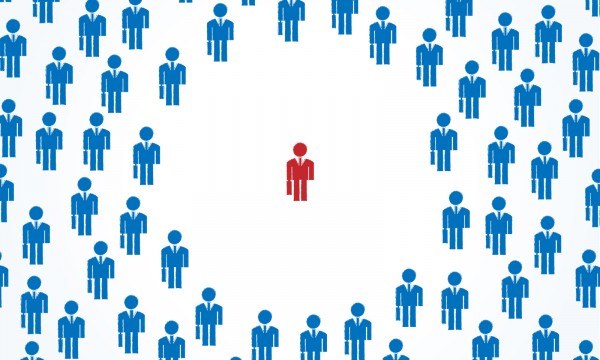They say you’re too old? Too poor? Too pregnant? Discrimination in the workplace can take a variety of forms and should never be tolerated. Here's how to cope.
- Browse Categories
- All Tips
-
Home & Garden
- All
- Appliances
- Bathroom
- Cleaning
- Crafts
- Decorating
- Electrical
- Flooring
- Furniture
- Garage Door
- Gardening
- Green Living
- Heating
- Home Alarm Systems
- Home Maintenance
- Home Remedies
- Home Security
- Home Staging
- House Sitting
- Junk Removal
- Kitchen
- Lawn Care
- Lock Systems
- Moving
- Outdoor Living
- Pest Control
- Plumbing
- Renovation
- Roofing
- Snow Removal
- Storage
- Tools
- Tree Service
- Health
- Family
- Travel
- Auto
- More Tips

What is workplace discrimination and how can you cope?
August 20, 2014

What exactly is discrimination?
If you're not treated equally in comparison to others, or if your rights are not respected in the same way as the rights of others, you may be the victim of discrimination. If you're fired or paid less than your colleague for the equivalent work, and it has nothing to do with your competence or your experience, that may be an example discrimination in the workplace. These rights are clearly established in the Charter of Human Rights and Freedoms.
Who can be the victim of discrimination?
Although ethnic origin, skin colour and gender are the most frequent targets of discrimination in the workplace, they are not the only ones. It is possible to be the victim of discrimination for other reasons:
- Age: Ageism is often a case of discrimination against older people, but it can apply to any age category.
- Sexual orientation: An individual, whether homosexual or heterosexual, has the right to equal treatment.
- Religion: All individuals have the same rights, regardless of their religious denomination or lack thereof.
- Political convictions: Whether a worker is a member of a political group or not, and whether they openly support social causes or not, they have the right to express their opinions publicly without being treated differently from others in the workplace.
- Language: An individual cannot have their fundamental rights taken away because of their spoken language or because of a different pronunciation.
- Social conditions: You cannot, for instance, discriminate against someone because of their lower income or because of their professional status is lower than another worker’s.
- Handicaps: A deficiency, whether physical or psychological and whether it is apparent (such as a missing limb) or not (such as a hearing impairment), does not diminish an individual’s rights.
- Pregnancy: A parent (or a future parent) cannot lose the rights she has acquired at work, under the pretext that she is pregnant or because of maternity or paternity leave.
- Civil status: A person cannot be discriminated against whether they're married, divorced, in a common-law union or a single parent.
- Legal history: A worker’s criminal record cannot be taken into account if the charge has no connection with their employment, or if the individual has received a pardon.
What to do in case of discrimination in the workplace
If you believe that you may be the victim of discrimination in the workplace, you can either file a complaint with the Human Rights Commission of the province where you work or with the Canadian Human Rights Commission if you work for the Canadian federal government. Although it is a more expensive alternative, it is also possible to bring about a legal action.






